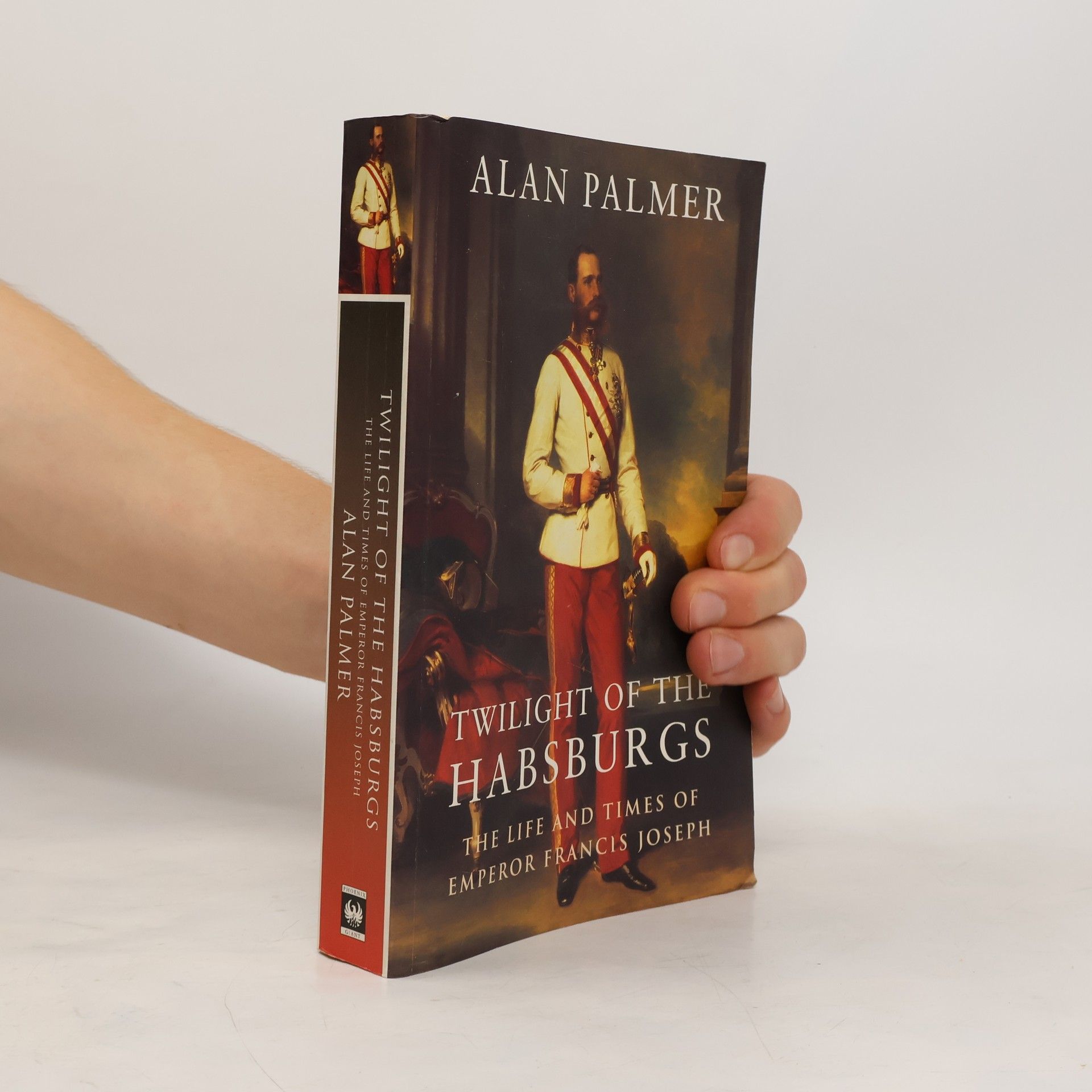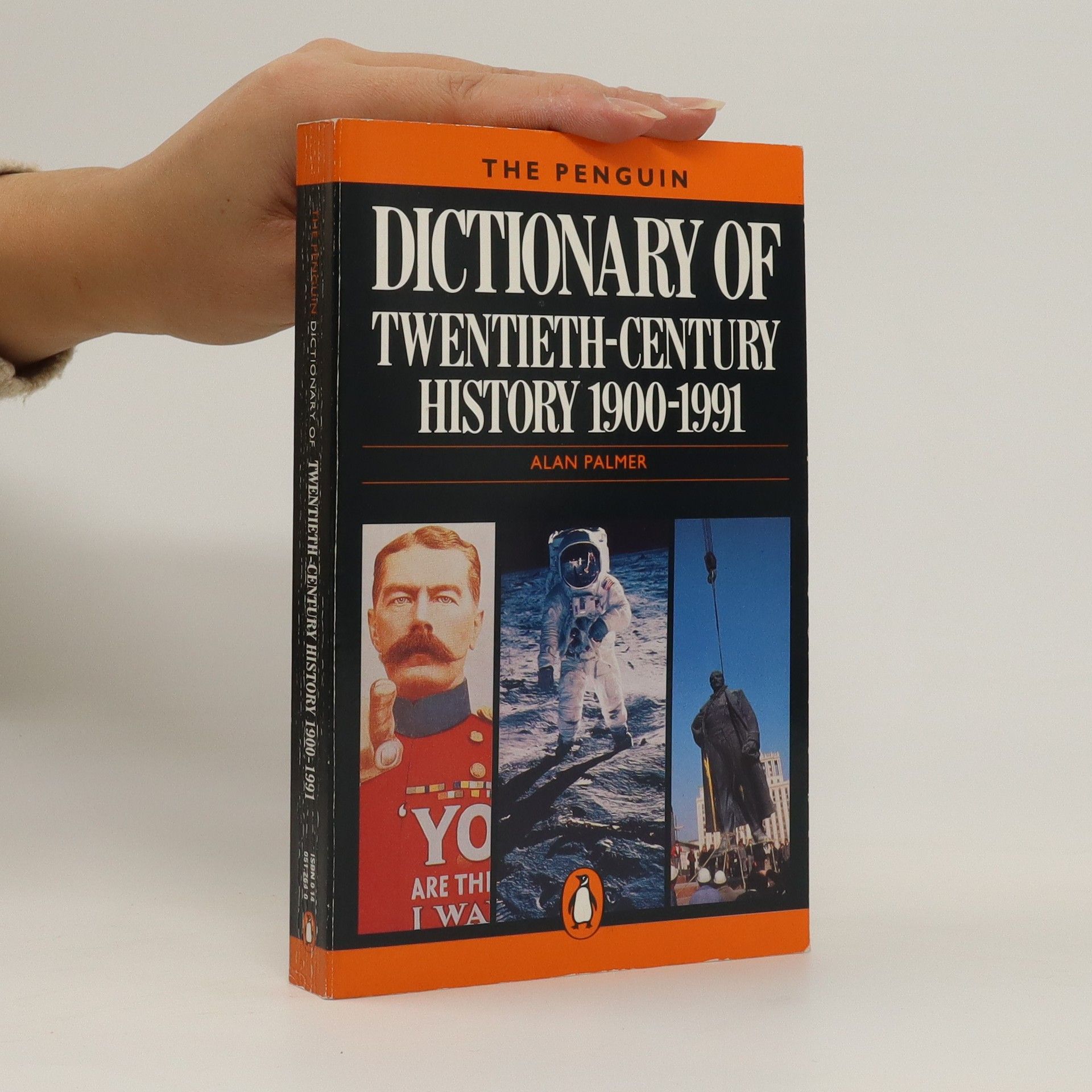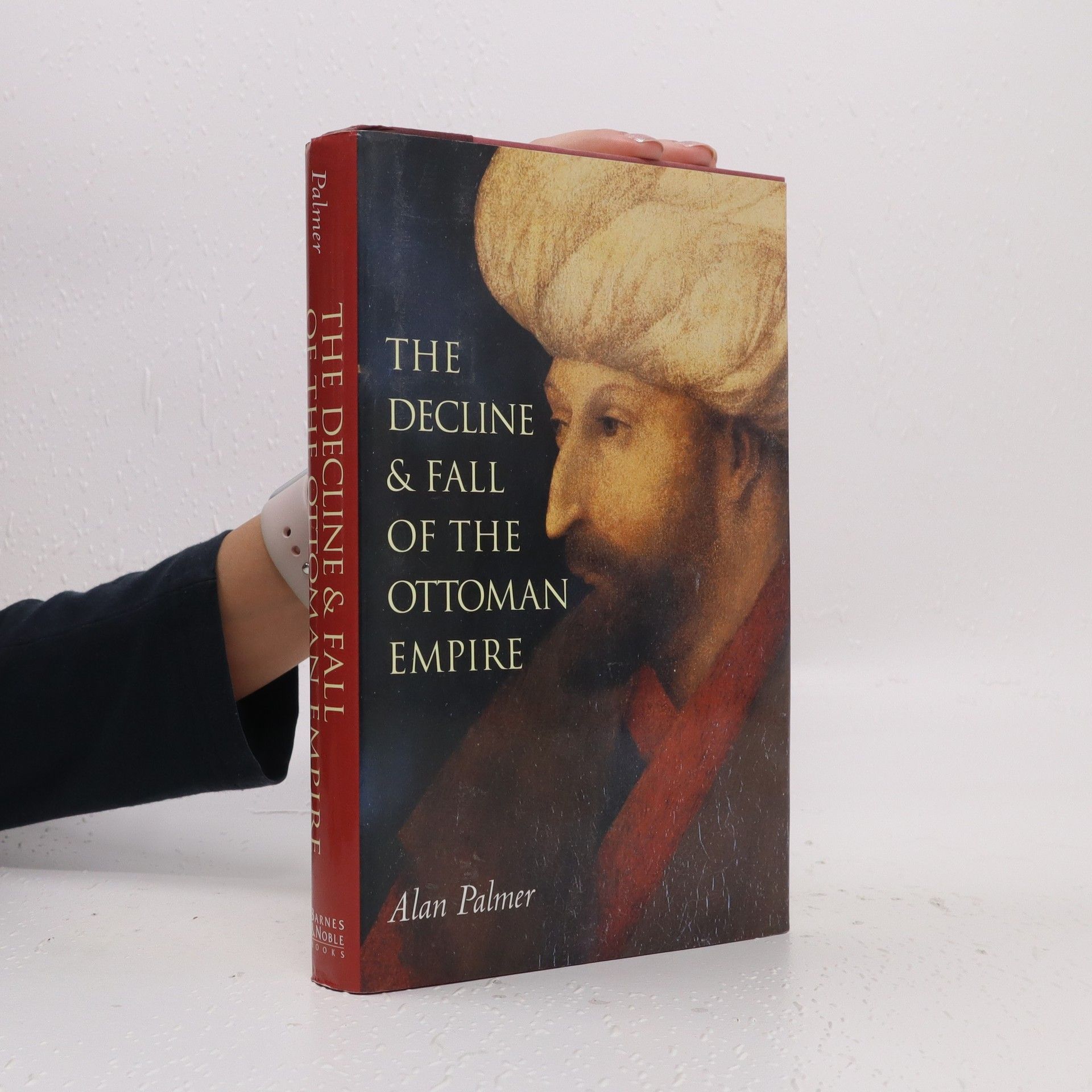"All the world's a stage, And all the men and women merely They have their entrances and exits." -As You Like It Covering the period from the Spanish Armada in 1588 to the publication of the First Folio in 1623, this work presents over 700 c
Alan Palmer Libri






The political and constitutional developments of the century are of central concern in this brief history
The Penguin Dictionary of Twentieth Century History
- 416pagine
- 15 ore di lettura
This revised edition of "The Penguin Dictionary of Twentieth Century History" provides a compact reference guide to the political, diplomatic, military, social, economic and religious affairs of the present century.
Twilight of the Habsburgs
- 400pagine
- 14 ore di lettura
Francis Joseph , emporor of Austria and King of Hungery, Bohemia, Dalmatia, Croatia, Slavonia has reigned in sovereignty for longer than no other ruler in history. Thsi book traces his life and times including his personal decision which were vital to both the Crimean War and WWI sixty years later.
A vivid and fascinating history of the Baltic Region for the general reader
The Decline & Fall of the Ottoman Empire offers a provocative view of the Empire's decline from the failure to take Vienna in 1683 to the abolition of the Sultanate by Mustafa Kemal (Attaturk) in 1922 during a revolutionary upsurge in Turkish national pride. The narrative contains instances of violent revolt and bloody reprisals, such as the massacres of Armenians in 1896, and other "ethnic episodes" in Crete and Macedonia. More generally, the narrative emphasizes recurring problems: competition between religious and secular authority; the acceptance or rejection of Western ideas; and the strength or weakness of successive Sultans. The book also highlights the special challenges of the early twentieth century, when railways and oilfields gave new importance to Ottoman lands in the Middle East--Publisher's description
For centuries the East End has been synonymous with poverty and sweated labour, with Cockney solidarity and popular protest. The poverty is still there but now, once again, East London is beginning to reshape itself. Alan Palmer takes us back through four centuries of life in this great melting pot which was once the very centre of Empire trade. People as well as goods have flowed in and out of it, from the Huguenot weavers of the 17th century to the Indians, Pakistanis and Bangladeshis of today. Its story is one of extremes - of small deprived streets and great Hawksmoor churches, of great social campaigners like George Lansbury and out-and-out criminals like the Krays. This book, with an introduction by London's great chronicler Peter Ackroyd, seeks to capture the spirit of the East End and its people, of those who have left their mark on it and those whose lives were marked by it for ever.
Insight Guides Pakistan: Travel Guide with eBook
- 418pagine
- 15 ore di lettura
Featuring detailed insights into local history and culture, this guidebook is designed for travelers planning extended trips to Pakistan. It combines informative content with stunning photography, creating an illustrated magazine feel that inspires adventure. The book also emphasizes sustainability by being printed on eco-friendly paper, making it a conscientious choice for eco-minded travelers.
Talk lean : shorter meetings., quicker results, better relations
- 208pagine
- 8 ore di lettura
Cover; Title page; Copyright page; Dedication; Contents; Preface; Acknowledgements; PART ONE: Introduction; 1: What the book is about and who it's for; What the Book Does; What the Book Does Not Do; 2: All different ... and all alike; Chapter Summary; PART TWO: Straight to the Point in Less than a Minute: Opening Your Meetings and Conversations; 3: The benefits of straightforward, straightaway; Chapter Summary; 4: Begin at the end; Means versus Ends; Business Objectives vs. Meeting Objectives; "That's Exactly What I Want to Happen!"; The Two Types of Meeting Objective



